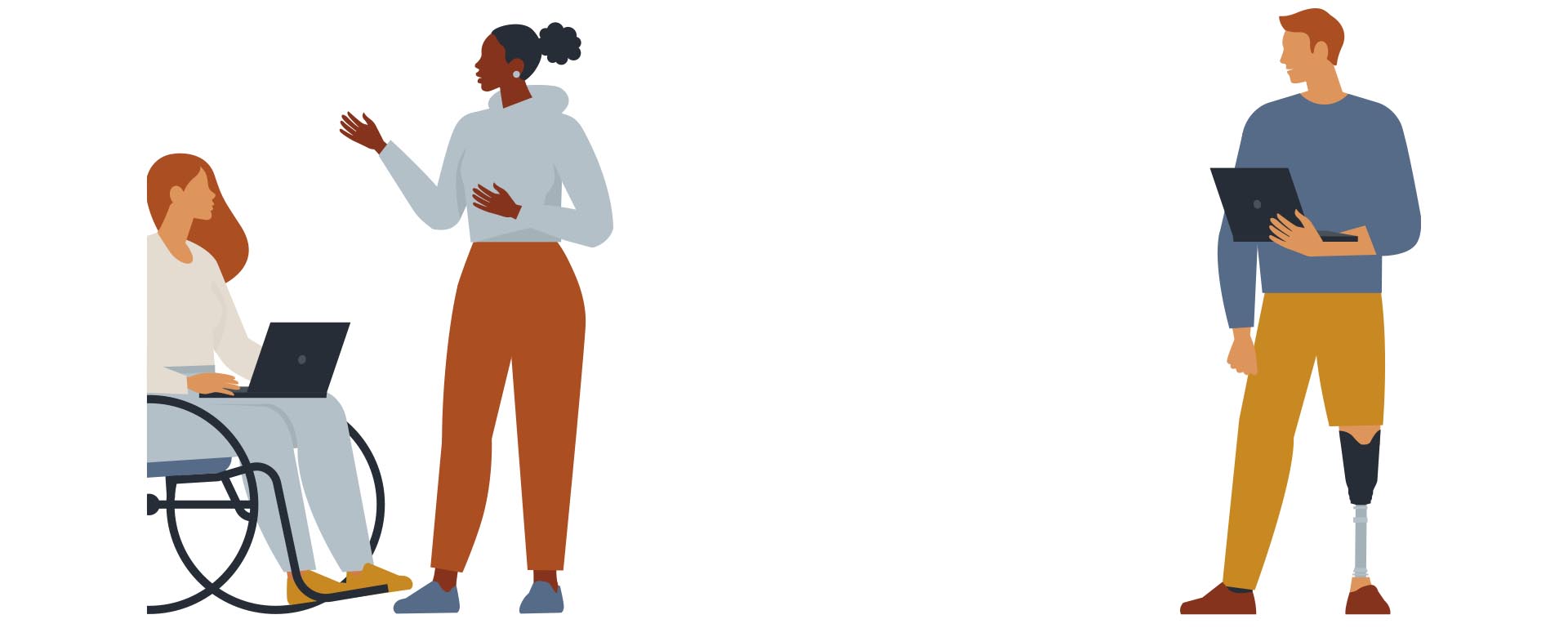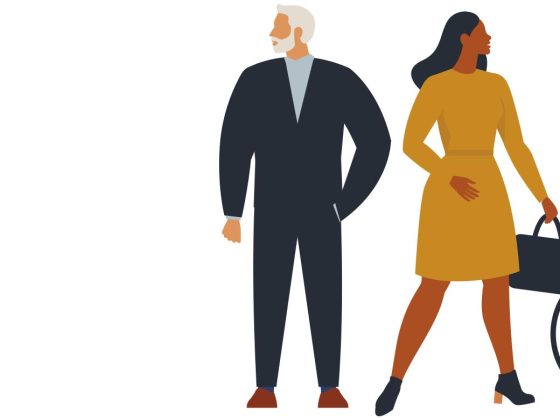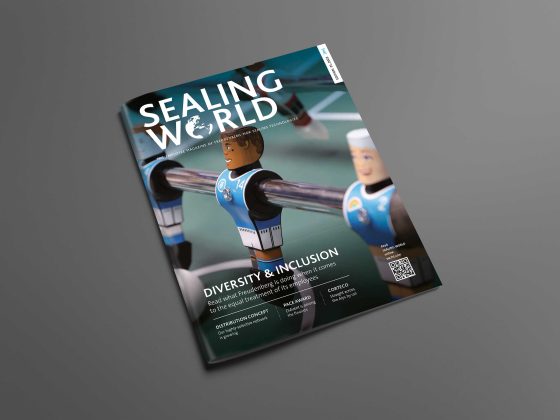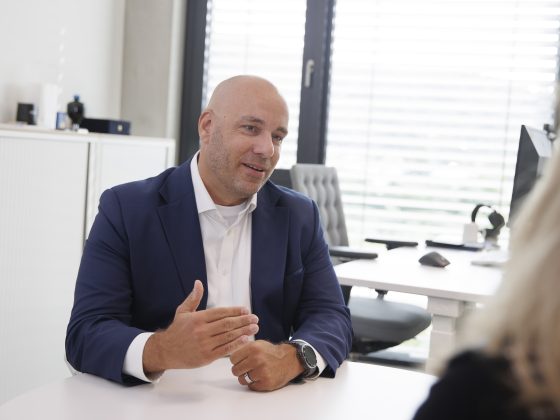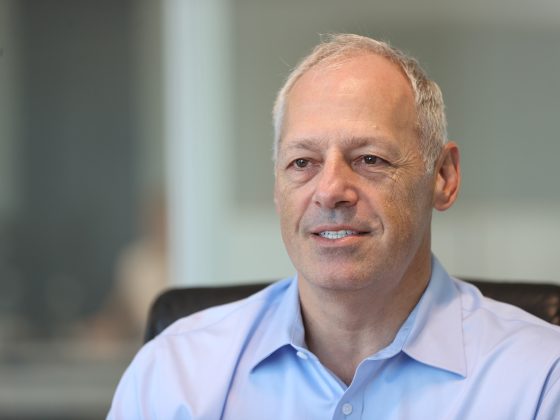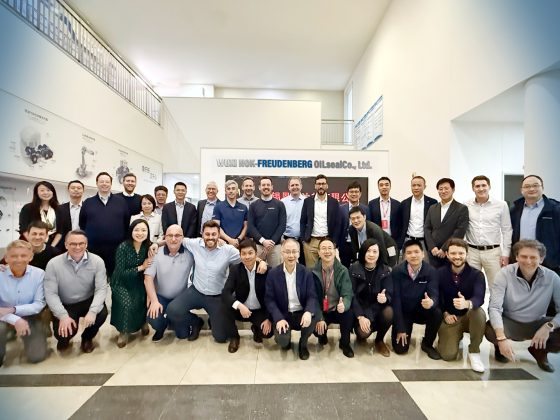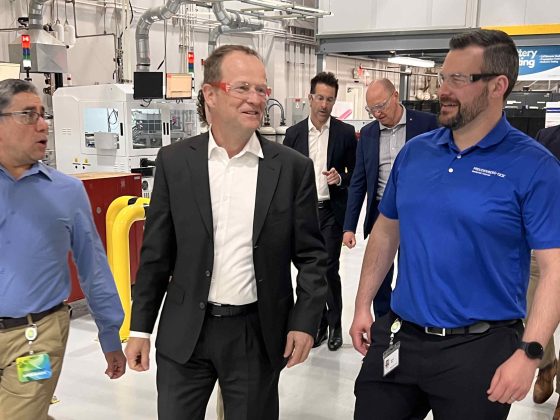Whether we are talking about “D&I,” Diversity & Inclusion, or “DEI,” whereby the “E” in the middle stands for Equity: Freudenberg appreciates and promotes the diversity of everyone who works for the company. Out of tradition, this has been the case for a long time and is currently more important than ever.

Jürgen Noll, Senior Vice President of Global Human Resources, and Gill Hogarth, Human Resources Manager in the UK, discuss in our interview what DEI means for Freudenberg Sealing Technologies (FST). Hogarth is also the DEI Facilitator for FST, working directly with Divisions and Corporate Functions on this. Earlier this year, together with the Board of Management, she and Jürgen Noll launched the FST Diversity Committee to add momentum to the advancement of DEI. In this interview, both Noll and Hogarth discuss the reasons for and objectives of FST’s DEI activities.

GILL HOGARTH
Human Resources Manager
in the UK

JÜRGEN NOLL
Senior Vice President of Global
Human Resources
What does Freudenberg mean by diversity?
HOGARTH: Quite simply, it is all the ways in which we differ. It is the mix of visible and invisible characteristics that make each and every one of us completely unique. Freudenberg has defined six core dimensions from this broad diversity spectrum which we focus on regarding our employees.
What are they?
NOLL: These are people’s gender, race and ethnicity, age, religion, their individual mental and physical abilities, and sexual orientation. As a general orientation, our basic goal is to reflect the diversity of the surrounding societies within our FST organization regarding these factors. What “society” means may vary from location to location. It may be the county or the state, or a mixture of both. Ultimately, it is up to each site to define what they consider to be society and what they use for orientation.
Why is diversity so important to FST?
NOLL: On the one hand, studies and surveys have shown that diverse organizations are more innovative and successful than others. When people with diverse perspectives and backgrounds sit down at the table together, they complement and enrich each other. This lively interaction results in more creativity and ideas. This in turn gives us a competitive edge. We are convinced of this at Freudenberg, and it applies to all Business Groups. At FST, we do not operate in a vacuum. Our “DEI” activities are part of a Freudenberg-wide approach. On the other hand, it is also part of our social responsibility.
HOGARTH: Moreover, diversity has always been part of Freudenberg’s DNA.
NOLL: That is right. In this case, corporate social responsibility and business success go completely hand in hand.
What does inclusion mean in this context?
HOGARTH: Inclusion makes the diversity “mix” work. An inclusive workplace is where everyone feels a sense of belonging, where everyone can thrive. Applied to FST, this means that we do not just need to hire or promote diverse individuals – we also need to offer a working environment in which everyone feels valued, respected, and heard. This requires a culture of mutual respect and appreciation, with equitable policies, processes, and structures. The motto is “It’s okay to be me”, where all employees can say “I am fully accepted at FST just as I am.” Being unique, being different from those around us, is explicitly welcome at FST!
Is that already the case?
HOGARTH: I am saying that this is the goal. We have set out on our journey and have already covered some distance. It is clear we are not yet where we want to be. I am greatly encouraged that we are now talking openly about DEI, that we are aware of the need to continually improve and that we are committed to doing so. This is a long journey, a constant learning process.
What is FST striving to do?
NOLL: Firstly, we want to increase the share of women in the company at all levels, especially in management and technical expert positions. Around half of the world’s population are women, and we want to mirror the diversity of our society within the company. In addition, we also look at the ethnic composition of our workforce. We consider diversity in every appointment. We have already made progress, but there is indeed still a long way to go. It is important to us that we always decide based on the best qualifications. So, we focus on recruitment in order to bring diverse candidates into the selection process in the first place. While our general goal, to mirror the diversity of the respective society within our company, is the same all over the world, we currently have a focus on the sites in the USA in terms of the racial and ethnic composition of our workforce.
Why did we select these two sub-aspects?
HOGARTH: As far as gender is concerned, I think many will know that this has long been a topic, but there is still some way to go. As for the focus on racial composition in the U.S., that is primarily for practical reasons. In the U.S., there are publicly available statistics on the racial composition of society. Likewise, there is an obligation for every company to report to the Equal Employment Opportunity Commission on a regular basis. That means there is data we can use to guide our efforts. The road to true “Diversity, Equity and Inclusion” is long, but we have to start somewhere. While not ignoring other dimensions of diversity, these focus areas bring momentum to our journey and allow real depth. We can already measure our success and progress in these two areas.
What can individual employees do to make FST better at “D&I” – or “DEI”?
HOGARTH: We can all help to create an environment where our colleagues can simply be themselves, their whole selves. We can also make ourselves knowledgeable and raise awareness with the individuals and teams we interact with locally. Sometimes it takes courage to call out a microaggression or to help amplify the voices of others who are not normally heard. Be brave enough to recognize our own biases—we all have them— and be prepared to unlearn assumptions and generalizations we have long held.
For those who may not know, a microaggression is a subtle verbal or nonverbal behavior that can, intentionally or unintentionally, communicate negative attitudes towards a marginalized group. Sometimes, these appear in the form of a joke or even a compliment and are often said without any harm intended but have a derogatory effect.
NOLL: Managers play an extremely important role in this. As role models, they must exemplify how we want to treat each other at FST and show that we want and promote diversity and inclusion.
HOGARTH: Yes, exactly. “DEI” is the personal responsibility of all managers. They are the driving force behind “Diversity, Equity & Inclusion at FST.” This task cannot be delegated.
Have you already seen any initial successes?
NOLL: In organizational terms, we have already achieved a lot. Gender diversity has been on our radar for a long time, and recently we have incorporated this topic into our regular Business Reviews. This makes two things very clear: firstly, Diversity & Inclusion is not something separate, but part of our business responsibility. And secondly, it is the responsibility of all managers and cannot be delegated. All organizational units have set D&I targets and must report on them quarterly. This has added additional momentum to the matter. We already talked about the DEI Committee: The committee is directly supported by our board of management. It will primarily analyze and propose D&I topics, but also be a contact partner and ally. Not to forget the many initiatives where employees themselves can network and support each other. In the U.S., each site has set benchmarks on racial composition of its workforces and developed action plans to achieve these benchmarks. We have also created new recruiting positions to find the right people with the backgrounds we want.
HOGARTH: Let’s not forget the topic of training. Diversity & Inclusion is already part of our management training. We will now expand this and include various additional learning opportunities. For example, we will launch an e-learning program on inclusion for all managers this year. The members of the “DEI Committee” have already completed and discussed the program. It’s a great series, it’s thought-provoking and gives you the opportunity to really engage in our journey.
